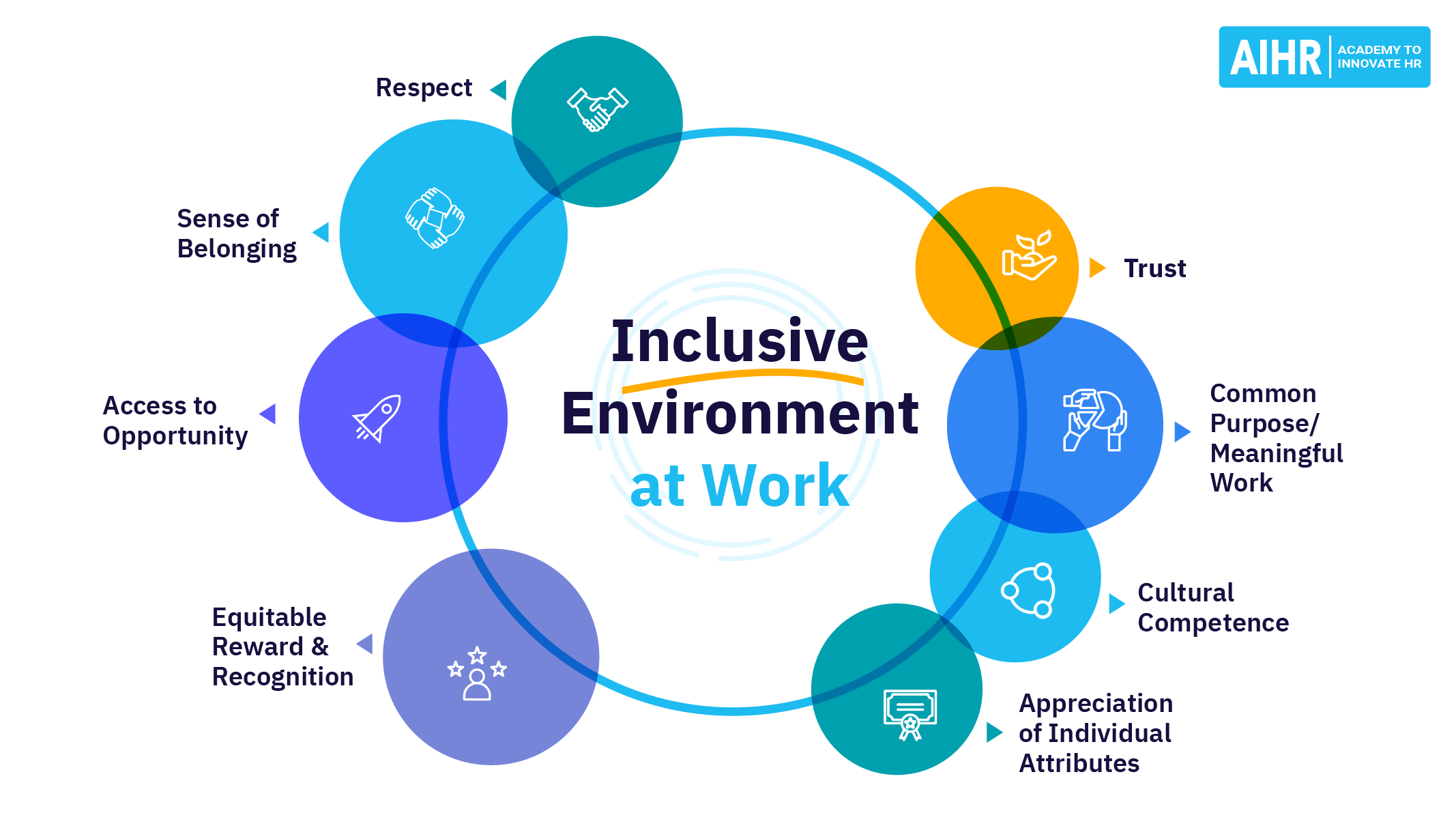Diversity and Inclusion in the Workplace
In today’s globalized world, diversity and inclusion have become crucial aspects of successful businesses. Embracing diversity and fostering an inclusive workplace environment can bring numerous benefits to organizations. In this article, we will explore the advantages of diversity and inclusion in the workplace and how they contribute to the overall success of a company.
Enhanced Creativity and Innovation
Diversity in the workplace brings together individuals with different backgrounds, experiences, perspectives, and ideas. This rich mix of perspectives fosters creativity and promotes innovation within the organization. When employees from diverse backgrounds collaborate, they bring forth a variety of solutions and approaches to problem-solving, leading to more innovative and effective outcomes.
Improved Decision Making
When a diverse group of individuals comes together to make decisions, they consider a wider range of viewpoints and insights. This diversity of perspectives leads to more well-rounded and informed decision-making processes. By incorporating different ideas and opinions, organizations can avoid groupthink and make more strategic and balanced decisions that benefit the company as a whole.
Increased Employee Engagement and Satisfaction
Creating an inclusive workplace where employees feel valued, respected, and supported leads to higher levels of employee engagement and satisfaction. When employees feel included and appreciated for their unique contributions, they are more likely to be motivated, productive, and committed to their work. This positive work environment also helps in attracting and retaining top talent, leading to a more diverse and skilled workforce.

Expanded Market Reach and Customer Base
A diverse workforce can better understand and cater to the needs of a diverse customer base. When employees from different backgrounds are involved in decision-making and product development processes, they bring insights and perspectives that resonate with a wider range of customers. This understanding of diverse markets can lead to increased customer satisfaction, loyalty, and ultimately, business growth.
Enhanced Reputation and Brand Image
Companies that prioritize diversity and inclusion are often seen as progressive, ethical, and socially responsible. By actively promoting diversity in the workplace, organizations can enhance their reputation and brand image. This positive perception can attract customers, investors, and potential employees who align with the company’s values, leading to long-term success and competitive advantage.
FAQs about the benefits of diversity and inclusion in the workplace
1. Why is diversity and inclusion important in the workplace?
Diversity and inclusion in the workplace are important because they bring a wide range of perspectives, experiences, and ideas, leading to better problem-solving, innovation, and creativity.
2. How does diversity and inclusion improve employee morale?
When employees feel included and valued for their unique contributions, it boosts their morale, job satisfaction, and overall engagement, leading to increased productivity and retention.
3. What are the benefits of a diverse and inclusive workforce?
A diverse and inclusive workforce fosters a positive work environment, enhances decision-making processes, attracts top talent, improves customer satisfaction, and promotes a company’s reputation.
4. How does diversity and inclusion contribute to innovation?
By bringing together individuals with different backgrounds, skills, and perspectives, diversity and inclusion encourage the exchange of ideas, leading to innovative solutions and approaches.
5. How can diversity and inclusion help a company better understand its customers?
A diverse workforce can better understand and connect with a diverse customer base, leading to improved customer insights, cultural competence, and the ability to cater to various market segments effectively.
6. What steps can organizations take to promote diversity and inclusion?
Organizations can promote diversity and inclusion by implementing inclusive hiring practices, providing diversity training, fostering an inclusive culture, and creating employee resource groups.
7. How do diversity and inclusion contribute to talent acquisition and retention?
A diverse and inclusive workplace is attractive to top talent, as it signals a company’s commitment to fairness, equality, and opportunity. It also improves employee retention by creating an inclusive and supportive environment.
8. Does diversity and inclusion impact business performance?
Research has shown that companies with diverse and inclusive workforces outperform their competitors, have higher financial returns, and are more innovative, adaptable, and resilient in a rapidly changing business landscape.
9. How can diversity and inclusion improve problem-solving and decision-making?
When diverse perspectives are considered, it leads to more comprehensive problem-solving and decision-making processes. Different viewpoints challenge assumptions, reduce biases, and promote critical thinking.
10. What are some challenges companies may face when implementing diversity and inclusion initiatives?
Common challenges include resistance to change, unconscious biases, lack of awareness or understanding, difficulty measuring the impact, and the need for ongoing commitment and support from leadership.
In conclusion, embracing diversity and inclusion in the workplace is not only the right thing to do, but it also brings significant benefits to organizations. By fostering a diverse and inclusive environment, companies can unlock the potential for enhanced creativity, improved decision-making, increased employee engagement, expanded market reach, and an enhanced reputation. Investing in diversity and inclusion is an investment in the future success of the organization.




